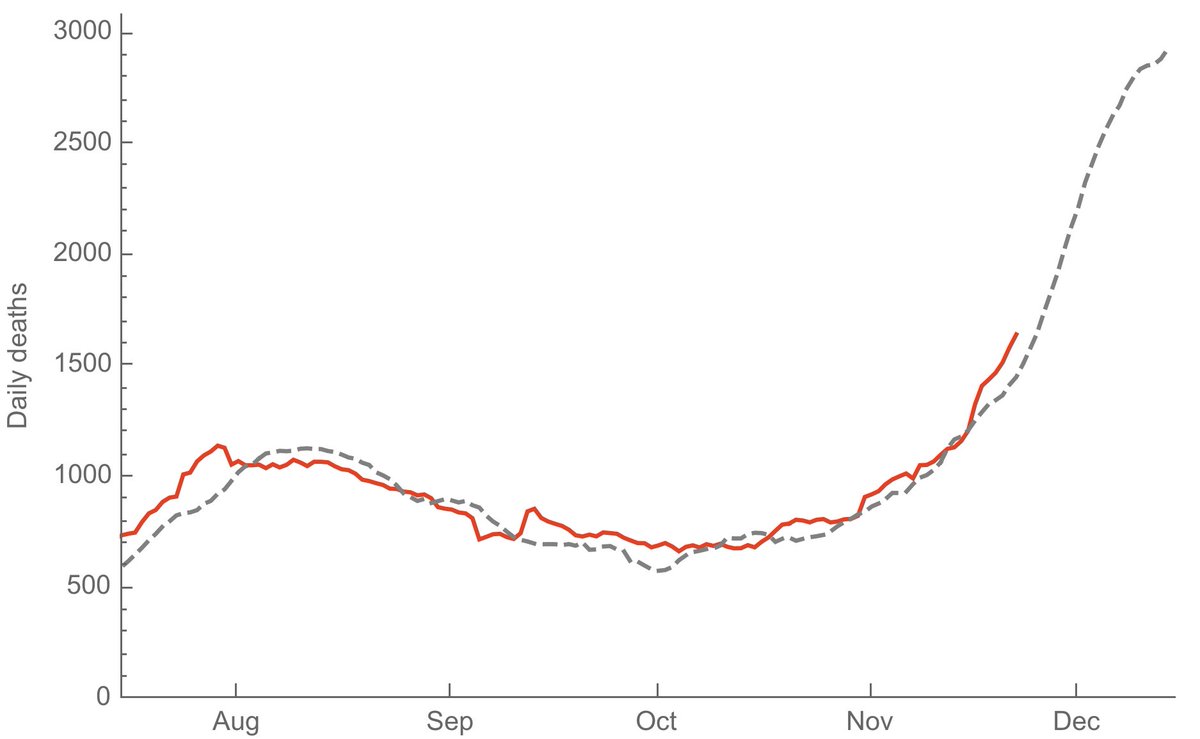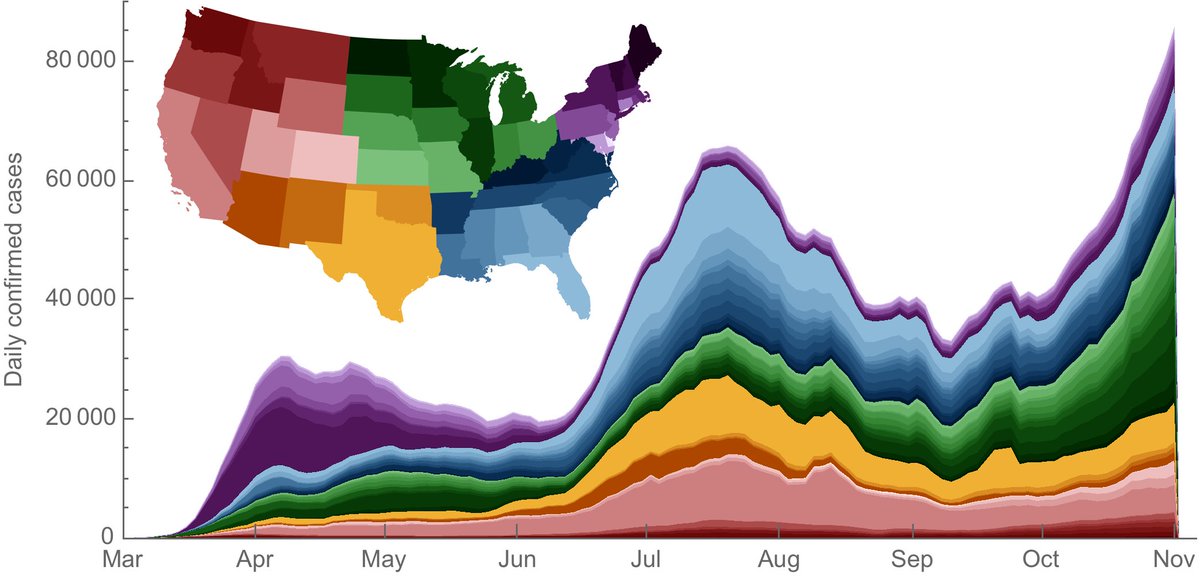
Another update on #COVID19 circulation in the US. With today's report we're seeing an average of ~172k daily cases reported compared to ~157k a week ago, and we're seeing ~1650 daily deaths reported compared to ~1200 a week ago. 1/10
https://twitter.com/COVID19Tracking/status/1331757086108106757
Although this is still a staggering amount of cases and growing daily, the rate of growth at the US level appears to be (at least temporarily) slowing. Here, I've plotted data from @COVID19Tracking, showing daily cases in the US on a log scale alongside 7-day moving average. 2/10 

Throughout October we saw steady exponential growth of the US epidemic (indicated by linear-on-a-log-scale dynamics and shown in the graph as the dashed straight line). Early November outpaced this steady growth but has recently slowed. 3/10
We can get a sense of this with the ratio of cases at a particular day relative to cases a week before. This ratio climbed throughout October indicating an accelerating rate of growth. However, it's been declining so far in November indicating a decelerating rate of growth. 4/10 

If we look at estimates of Rt through time via rt.live we can see this trend where Rt of incident infections on Nov 15 is estimated to be lower in 42 states than it was on Nov 1. However, in 38 states, Rt is still estimated to be greater than 1. 5/10 

Here, I'm plotting state-level trends to show cases per capita as bubble size and Rt as bubble color. The midwest and the mountain west have generally the highest per capita case loads, but the hardest hit states including the Dakotas have begun to subside slightly. 6/10 

Although Rt is generally moving in a good direction, I don't know how rapidly societal measures can bring Rt below 1 across the US. 7/10
Deaths continue to increase reflecting case loads from ~3 weeks previous. The forecast using a 1.8% case fatality rate and a 22-day lag is still fitting the data well and has predicted the current 7-day average of ~1650 daily deaths (though with a slight under-projection). 8/10 

This method projects that the huge ongoing case loads will translate to an average of over 2500 deaths per day in just two weeks, even assuming no further increases in circulation. 9/10
Reporting of cases and deaths will likely be down over Thanksgiving weekend. We'll have to wait until the week of the 30th to have a good sense of where things are headed. 10/10
• • •
Missing some Tweet in this thread? You can try to
force a refresh







